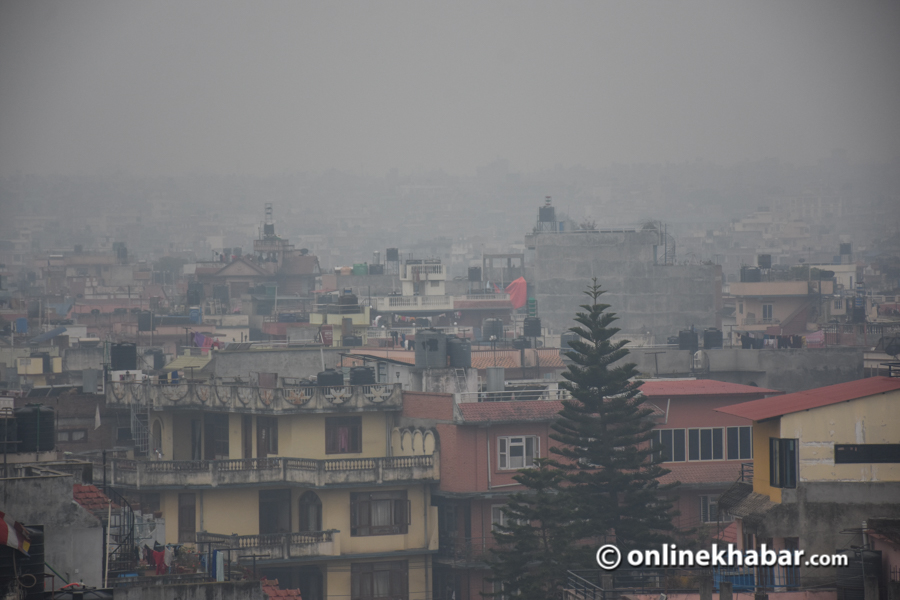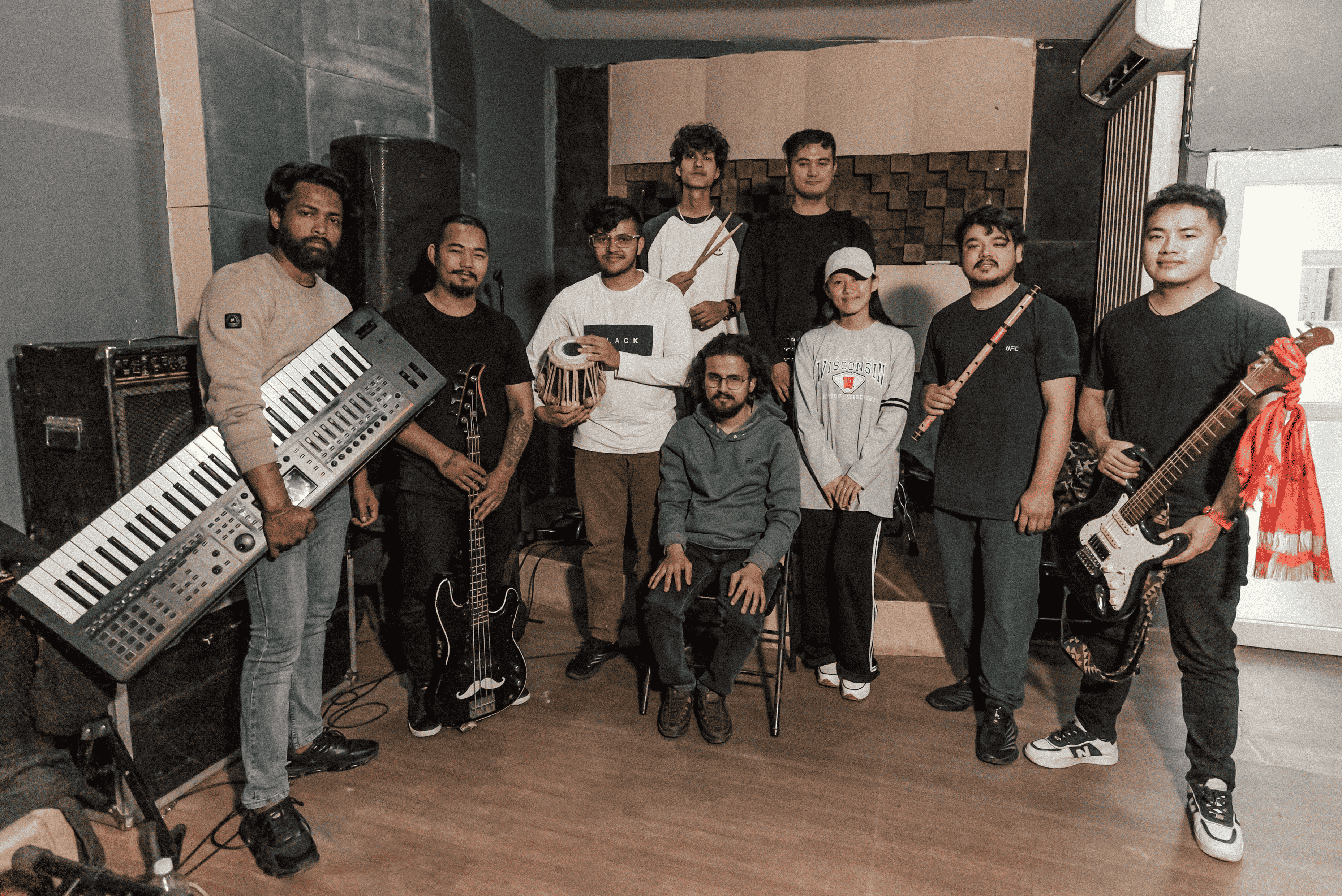
Nepali chef Tanka Sapkota has been capturing attention in Portugal with his exceptional presentation of Italian cuisine. His culinary expertise has been showcased in a documentary titled Taste of Italy, created to celebrate the 25th anniversary of his restaurant, Come Prima.
The six-episode documentary is currently airing on Portugal’s TVI television channel. It highlights various Italian dishes, the ingredients used, and Tanka Sapkota’s nearly three decades of experience in the culinary industry. “This documentary showcases my deep passion for Italian cuisine,” said Sapkota. “White truffle from Alba, one of the world’s rarest delicacies, is a highlight of my offerings, and serving it to my customers brings me immense joy.”
In 2018, Sapkota purchased a 1,153-gram white truffle, earning the title of owning Europe’s largest truffle that year. He was also honored with the Knight of the Truffle and Wine of Alba title by a prestigious culinary institution founded in 1967, making him the first chef from Portugal to receive this recognition.
The documentary, directed by filmmaker Tiago P. de Carvalho, was filmed over two months in various locations across Italy.
Culinary journey and business expansion
Tanka Sapkota arrived in Portugal in 1996 after working in Germany and Italy. In 2014, he established Come Prima with a unique golden-plated oven, reportedly the second of its kind in the world, which cost nearly one crore Nepali rupees. While his restaurant is Nepali-owned, the majority of his regular customers are Portuguese and other Europeans.
“My customers are as fascinated by my oven as they are by the food,” said Sapkota. “There are very few media outlets in Portugal that haven’t covered my restaurant and this extraordinary oven.”
He currently operates four restaurants in Lisbon—three specializing in Italian cuisine and one Nepali restaurant called Casa Nepalesa. His Nepali restaurant attracts European customers by offering authentic Nepali flavors. The staff serve guests in traditional Nepali attire, and the restaurant features a collection of artifacts showcasing Nepal’s rich culture.
Passion for truffles and culinary research

Tanka Sapkota has a deep passion for truffles, often referred to as the “diamonds of the kitchen.” He has invested heavily in truffle collection and research. Driven by this passion, he collaborated with the University of Évora for two years to study truffle availability in Portugal. Last month, he successfully confirmed the presence of truffles in Portugal, a discovery that has brought him back into the spotlight in European media.
Several leading Portuguese news outlets have prominently featured his research. Sapkota also plans to continue his study and create a documentary about truffles.
In 2018, he publicly showcased the world’s largest and rarest white truffle, which he had imported from Italy. Even today, his restaurant remains one of the few in Portugal to offer truffle-based dishes. “People travel over 400 miles just to experience the taste of truffles at my restaurant,” he said.
High-profile clients: From politicians to celebrities
According to Tanka Sapkota, maintaining high-quality service is the key to success. He introduced Forno d’Oro, the first restaurant in Portugal to serve Neapolitan pizza, and has consistently prioritized quality over rapid expansion.
His dedication has attracted high-profile clients, including the President and Prime Minister of Portugal. “Many influential figures dine at my restaurant, and I have developed good relationships with them,” he said. Portuguese President Marcelo Rebelo de Sousa and former Prime Minister António Luís Santos da Costa have both visited his establishment.
During a recent visit to Come Prima for a documentary shoot, renowned Portuguese film directors, journalists, and photographers were also present. They praised Sapkota’s dedication and work ethic. “Tank’s hard work and integrity have positively influenced our perception of Nepal and Nepali people,” said filmmaker António Pedro.
Hard work and integrity: The foundation of success
Sapkota’s journey began in 1992 when he moved to Germany with his brother at a time when Nepalis could travel there without a visa. However, he had no clear plan upon arrival. Lacking technical skills or formal education, he initially worked as a dishwasher in restaurants.
Struggling with language barriers and uncertainty, he faced moments of doubt about his decision to move abroad. However, he chose to persevere rather than return to Nepal. Working 14-15 hours a day, he quickly advanced from a dishwasher to a kitchen helper, waiter, and eventually a skilled chef. His dedication, honesty, and enthusiasm made him a favorite among restaurant owners.
When he moved to Portugal in 1996, Sapkota decided to start his own business and turn his culinary knowledge into a profession. He continued to refine his skills by studying Italian cuisine at Gambero Rosso Academy in Rome. For two years, he commuted between Italy and Portugal every weekend—attending classes in Rome on Sundays and returning to work in Lisbon by Friday night.
Promoting Nepali cuisine on the global stage
Despite spending nearly three decades in Portugal, Sapkota’s heart remains in Nepal. He dreams of introducing Nepali cuisine to a global audience. “When I first started my business, high-quality restaurants were scarce in Portugal. I saw this gap as an opportunity,” he said. Today, Portugal has become a destination for food lovers, with fine-dining establishments flourishing.
Sapkota believes Nepal has immense potential to promote its cuisine and culture internationally. “Many countries have successfully branded their food on a global scale. Nepal can do the same,” he said. “Beyond being just a workforce provider, Nepal can produce culinary experts and industry leaders. We must leverage our cultural heritage to establish Nepal as a global hub for hospitality and cuisine.”


















